Meat sourcing – and the apparent slipping of standards when it comes to British beef, lamb and even chicken by some supermarkets – has become an recurrent theme in recent months.
And just to prove how much of a hot topic it has become, The Grocer’s series of articles highlighting retailer pivots towards meat imports have consistently been among our best-read stories since we revealed Asda had started selling German chicken, processed in the Netherlands, back in March.
In a departure from once rock-solid British and Irish commitments for beef by the mults, Asda also started selling Uruguayan beef in May, while Sainsbury’s is selling New Zealand beef burgers and kebabs, and Morrisons recently unveiled a range of Australian beef steaks.
These moves have already provoked strong criticism, not just from the likes of the NFU – which last week described such moves as “deeply concerning” and “outrageous” – but also from rival supermarkets, in what is becoming an increasingly polarised, and public, debate.
Meat matters
Aldi kicked that off at the end of May, when UK & Ireland CEO Giles Hurley threw serious shade at Sainsbury’s move to stock Aussie beef. He reminded The Grocer the move came “from a supermarket which has a British beef commitment”, before stressing that Aldi’s own commitment to British sourcing “won’t be compromised”.
Those sentiments were shared by both Waitrose and Co-op this week. Waitrose head of agriculture, aquaculture and fisheries Jake Pickering pointed out such sourcing decisions “undermine the industry’s credibility with the farming community, contradicting pledges to source 100% British at a time when British farming needs our support more than ever before”.
Co-op’s food MD Matt Hood added now was “not the time to be stepping back on vital sourcing standards and while others seem to be doing exactly that, at Co-op, we remain as committed to British farmers today as ever”.
This was “what our members and customers expect from us”, he said.
And that latter point is clearly now a serious consideration, given the findings of Red Tractor research, also published this week.
At a time of what it described as “extensive speculation about an increase in food imports” as a result of trade deals, the farm assurance scheme’s latest Trust in Food Index revealed significant shifts in shopper attitudes. Drawing on research from more than 2,000 UK consumers, the index revealed that 90% wanted to see more food produced in the UK, up from 83% in 2023.
Trade deals and trust
In a clear sign consumers are becoming increasingly aware of where their food comes from, just a third of people said they trusted food which had been produced in the US (33%) and India (31%). Consumer trust in the two countries to have signed the most recent trade deals with the UK has declined steeply from 2023’s figures of 74% and 62%, respectively.
Shoppers responding to the survey were clear about their support for British food and farming, Red Tractor said. It cited comments from the survey which claimed “we don’t support our own farmers enough”, while “too many cheap imports from countries that don’t have the same safeguards for crops or animals we do here”.
As discussions continued around further incursions into the UK market for pork and chicken, alongside already-agreed access to US beef imports, Red Tractor chairman Alistair Mackintosh insisted “we must be clear”.
“Our priority should be championing British produce – reared to world-leading standards and independently assured through third-party assurance schemes like Red Tractor, reassuring shoppers that items have gone through rigorous checks before reaching the supermarket”, he added.
Granted, the imported beef stocked by the likes of Asda, Sainsbury’s and Morrisons appears to have been sourced from farms with broadly the same standards as UK suppliers.
But with UK supply tight and imports of beef up a whopping 146% from Australia, 62% from New Zealand and 17.7% from Brazil over the past year, who’s to say we won’t see more of what one social media commenter described as “scope creep that will only get worse”.
“Consumers are clear that it is important their food is produced here in the UK, and rightly expect that what they put in their shopping basket reflects British values,” said Mackintosh this week.
“Undercutting those expectations with lower-standard imports would betray the trust that farmers and assurance schemes have worked so hard to build,” he added.
Whether supermarkets ignore these sentiments and continue to increase imports, and whether shoppers are turned on or off by it, will be a fascinating test of just how much British sourcing actually matters to consumers. Will those once-sacrosanct UK commitments become a thing of the past?







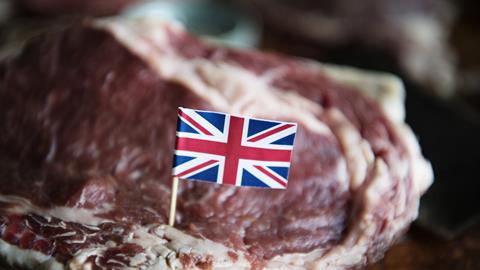
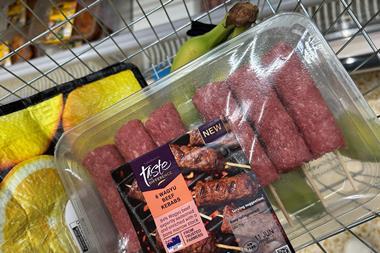

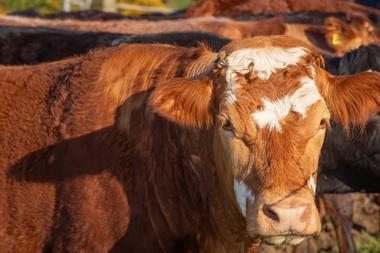
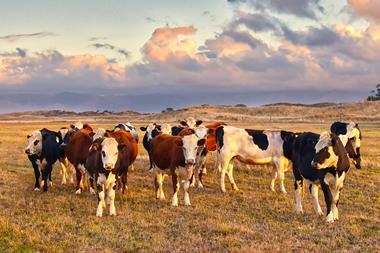
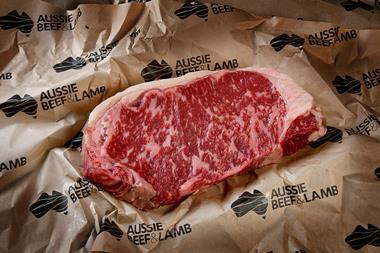







No comments yet